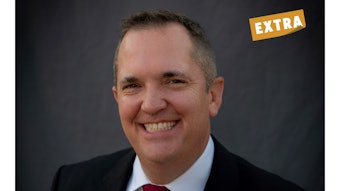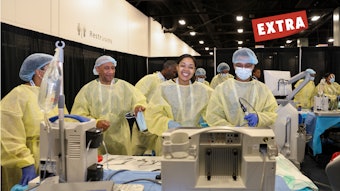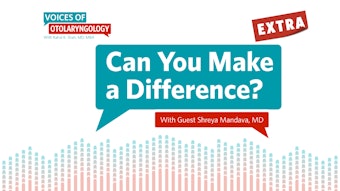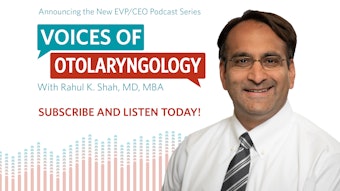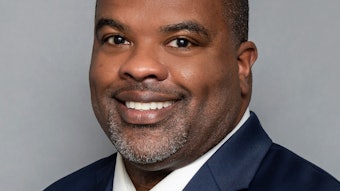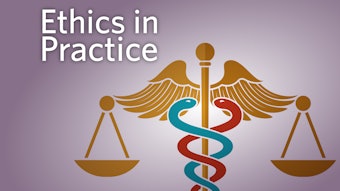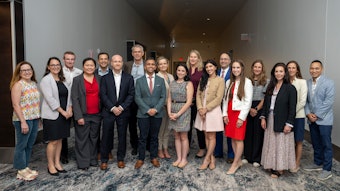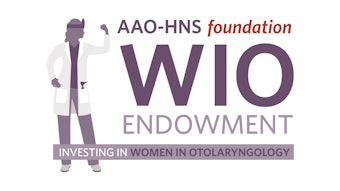Perspective: Gender-Affirming Care and a Call to Action
Otolaryngologists play an integral role by providing gender-affirming care that establishes congruence between a patient’s gender identity and how they appear and sound.
Isaac L. Alter, AB, Anaïs Rameau, MD, MS, MPhil, AJ Flaherty, MD, Erynne A. Faucett, MD, Brandon J. Baird, MD, Noriko Yoshikawa, MD, Minka L. Schofield, MD, MPH, and Brian A. Nuyen, MD

The AAO-HNS Position Statement rightfully emphasizes the importance of gender-affirming voice treatment. However, future statements recognizing the full spectrum of evidence-based gender-affirming surgical treatment and novel research to advance TGNC facial and vocal care are needed. As policymakers seek medical guidance on head and neck gender-affirming care from experts, the AAO-HNS has the opportunity to expand its stance even further on this crucial issue to firmly support not only vocal gender-affirmation treatment but also gender-affirming facial surgery and the full spectrum of gender-affirming care that can be life-saving for all TGNC individuals.
While many legislative actions have been focused on the restriction of gender-affirming care for children, increasing efforts by lawmakers have also attempted to extend the reach to adults.13 Some states have raised the age cutoff from 18 to 21 or 26, while others have directed Medicaid to no longer cover certain forms of gender-affirming care. In 2023, Missouri sought to effectively ban gender-affirming treatment by enacting such substantial regulatory hurdles—including 18 months of psychological assessment—that access to these services would become a potentially insurmountable obstacle to care. Given that the self-reported number of TGNC individuals in the United States is rising—with more than 5% of adults under 30 identifying as transgender or non-binary—there is an urgent need to secure these individuals’ rights to receive healthcare in the face of these unfavorable legislative actions.14
TGNC patients face significant discrimination and stigma in American society, which extend into their efforts to engage with the healthcare system, where they face substantial barriers to receiving both general and gender-affirming care.15 Many of the concerns among TGNC individuals can be grouped into lack of safety and acceptance; otolaryngologists play an integral role in relieving these concerns by providing gender-affirming care that establishes congruence between a patient’s gender identity and how they appear and sound. The amount of gender information in the face and voice, as well as the health impacts of facial and vocal gender dysphoria, are significant,16,17 solidifying the importance of otolaryngologists, as well as facial plastic surgeons and laryngologist subspecialists. The research behind the effectiveness of gender-affirming healthcare is substantial.
A recent study demonstrated the sizable impact of facial feminization surgery in improving nearly every measured outcome related to mental health and quality of life.18 Given that rates of suicide attempts among transgender individuals may be as high as 50% and that these individuals face high rates of assault based on gender presentation,19 gender-affirming care can be a life-saving intervention. The research and clinical care behind head and neck gender affirmation should validate the need for a broader official position and continued advocacy from the AAO-HNS and its members on these critical issues, as many of its members are already in the trenches providing this essential care for TGNC patients.
Lastly, diversity, equity, and inclusion have been included as key facets of the mission of the AAO-HNS, which has acknowledged that increasing the diversity of its workforce will lead to improved outcomes for patients of all backgrounds.20 A public position by the Academy supporting all forms of TGNC healthcare would be wholly consistent with this stated goal. Policies and positions inform the cultures of communities, and the cultural impact on LGBTQIA+ medical trainees seeking a specialty that advocates for the needs of the TGNC community cannot be overstated. An important message of support would also be sent to practicing LGBTQIA+ otolaryngologists.
Medically and ethically, otolaryngologists’ care and advocacy for the marginalized TGNC community are compellingly needed. The evidence and science are clear that without gender-affirming care, TGNC individuals will have poorer quality of life, are likely to face gender-based violence, and may choose to end their lives. We recognize our Academy’s recent statement and call upon our colleagues to continue to publicly affirm the right of TGNC people to life-improving healthcare.
References
- AMA reinforces opposition to restrictions on transgender medical care. Available at: https://www.ama-assn.org/press-center/press-releases/ama-reinforces-opposition-restrictions-transgender-medical-care. Accessed November 2 2023.
- Wyckoff AS. AAP reaffirms gender-affirming care policy, authorizes systematic review of evidence to guide update. August 4, 2023. Available at: https://publications.aap.org/aapnews/news/25340/AAP-reaffirms-gender-affirming-care-policy. Accessed November 2 2023.
- Health Care for Transgender and Gender Diverse Individuals: ACOG Committee Opinion, Number 823. Obstet Gynecol 2021; 137:e75-e88.
- Attacks on Gender-Affirming and Transgender Health Care. April 24, 2023. Available at: https://www.acponline.org/advocacy/state-health-policy/attacks-on-gender-affirming-and-transgender-health-care. Accessed February 6 2024.
- Transgender Care. August 2022. Available at: https://www.auanet.org/about-us/policy-and-position-statements/transgender-care. Accessed February 6 2024.
- Transgender Health: An Endocrine Society Position Statement. December 16, 2020. Available at: https://www.endocrine.org/advocacy/position-statements/transgender-health. Accessed February 6 2024.
- Macdonald V, Verster A, Mello MB, et al. The World Health Organization’s work and recommendations for improving the health of trans and gender diverse people. J Int AIDS Soc 2022; 25 Suppl 5:e26004.
- GLAAD. Medical Association Statements in Support of Health Care for Transgender People and Youth. June 21, 2023. Available at: https://glaad.org/medical-association-statements-supporting-trans-youth-healthcare-and-against-discriminatory/. Accessed November 2 2023.
- ASPS Challenges Big Tech Censorship of Gender Affirming Care. June 22, 2021. Available at: https://www.plasticsurgery.org/for-medical-professionals/advocacy/advocacy-news/asps-challenges-big-tech-censorship-of-gender-affirming-care. Accessed November 2 2023.
- State Focus on Gender Affirmation Intensifies. February 25, 2021. Available at: https://www.plasticsurgery.org/for-medical-professionals/advocacy/advocacy-news/state-focus-on-gender-affirmation-intensifies. Accessed November 2 2023.
- ASPS statement to press regarding gender surgery for adolescents. August 14, 2024. Available at: https://www.plasticsurgery.org/for-medical-professionals/publications/psn-extra/news/asps-statement-to-press-regarding-gender-surgery-for-adolescents. Accessed October 30 2024.
- Transgender Voice. May 17, 2024. Available at: https://www.entnet.org/resource/transgender-voice/. Accessed May 27 2024.
- Ghorayshi A. Many States Are Trying to Restrict Gender Treatments for Adults, Too. The New York Times, 2023.
- Brown A. About 5% of young adults in the U.S. say their gender is different from their sex assigned at birth. Available at: https://www.pewresearch.org/short-reads/2022/06/07/about-5-of-young-adults-in-the-u-s-say-their-gender-is-different-from-their-sex-assigned-at-birth/. Accessed November 2 2023.
- Gonzales G, Henning-Smith C. Barriers to care among transgender and gender nonconforming adults. Milbank Q 2017; 95:726-748.
- Nuyen B, Kandathil C, McDonald D, Chou DW, Shih C, Most SP. The Health Burden of Transfeminine Facial Gender Dysphoria: An Analysis of Public Perception. Facial Plast Surg Aesthet Med 2021; 23:350-356.
- Nuyen B, Kandathil C, McDonald D, Thomas J, Most SP. The impact of living with transfeminine vocal gender dysphoria: Health utility outcomes assessment. Int J Transgend Health 2023; 24:99-107.
- Caprini RM, Oberoi MK, Dejam D, et al. Effect of Gender-affirming Facial Feminization Surgery on Psychosocial Outcomes. Ann Surg 2022.
- Virupaksha HG, Muralidhar D, Ramakrishna J. Suicide and Suicidal Behavior among Transgender Persons. Indian J Psychol Med 2016; 38:505-509.
- Diversity, Equity, and Inclusion. Available at: https://www.entnet.org/about-us/diversity-equity-inclusion/. Accessed November 2 2023.
